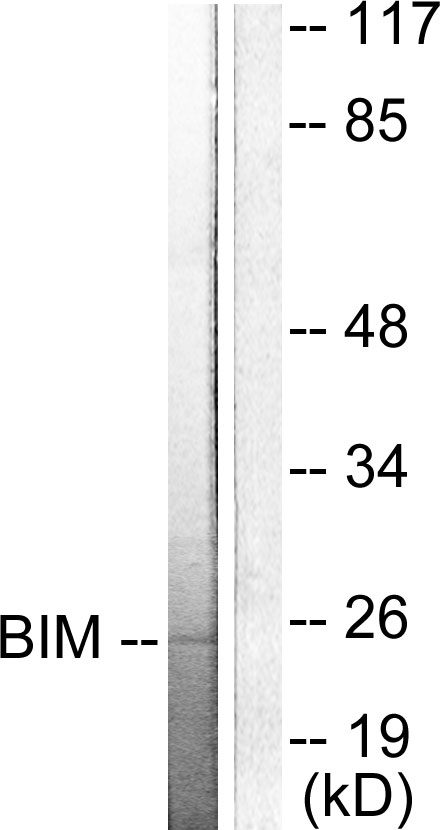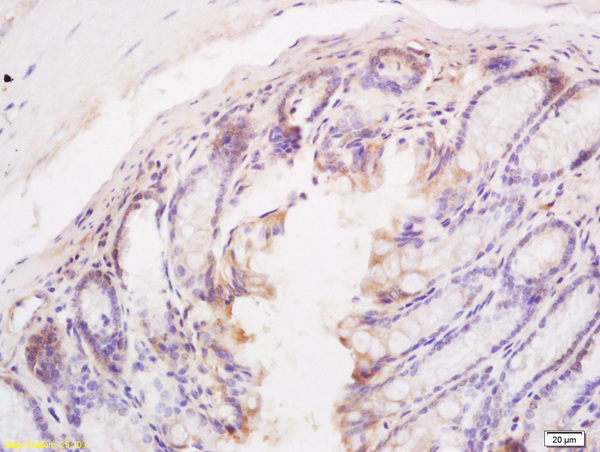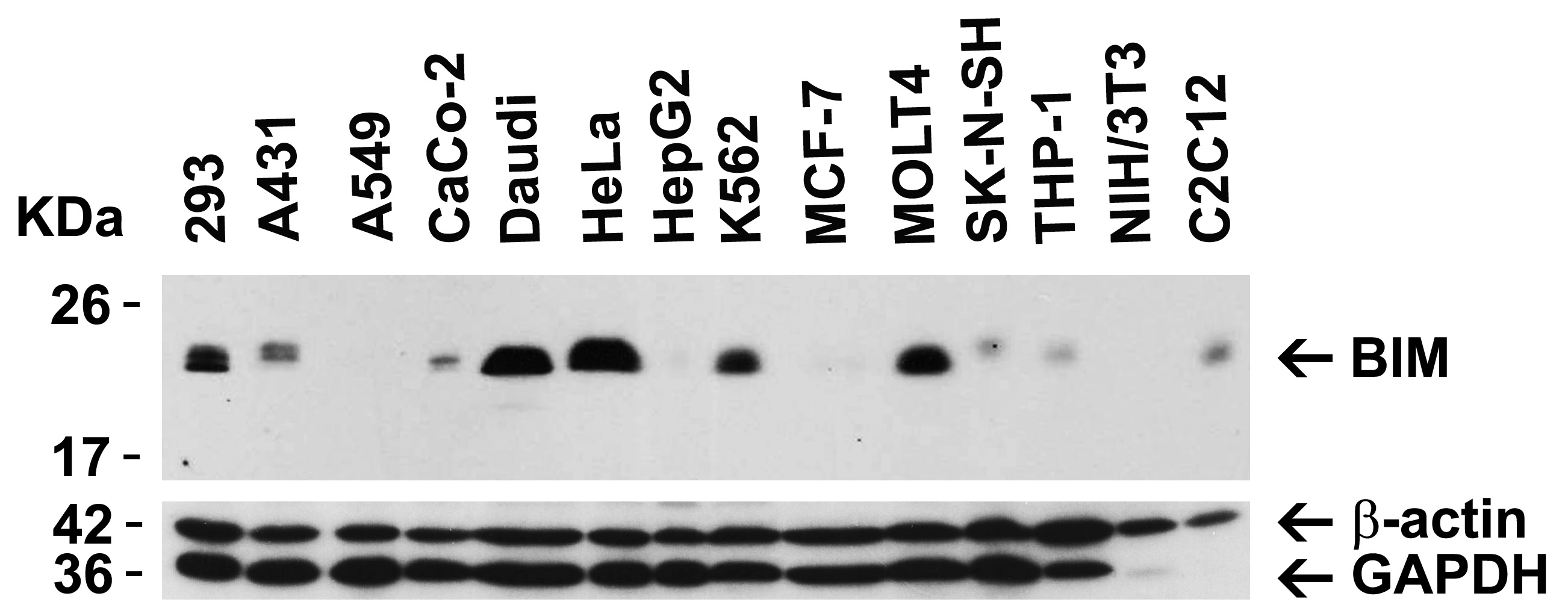![WB analysis of various samples using GTX01542 Bim antibody [GT1234]. Dilution : 1:1000 Loading : 25 μg WB analysis of various samples using GTX01542 Bim antibody [GT1234]. Dilution : 1:1000 Loading : 25 μg](https://www.genetex.com/upload/website/prouct_img/normal/GTX01542/GTX01542_20200508_WB_1_w_23053121_783.webp)
WB analysis of various samples using GTX01542 Bim antibody [GT1234]. Dilution : 1:1000 Loading : 25 μg
Bim antibody [GT1234]
GTX01542
ApplicationsWestern Blot
Product group Antibodies
ReactivityHuman, Mouse, Rat
TargetBCL2L11
Overview
- SupplierGeneTex
- Product NameBim antibody [GT1234]
- Delivery Days Customer9
- Application Supplier NoteWB: 1:500 - 1:2000. *Optimal dilutions/concentrations should be determined by the researcher.Not tested in other applications.
- ApplicationsWestern Blot
- CertificationResearch Use Only
- ClonalityMonoclonal
- Clone IDGT1234
- ConjugateUnconjugated
- Gene ID10018
- Target nameBCL2L11
- Target descriptionBCL2 like 11
- Target synonymsBAM, BIM, BOD, bcl-2-like protein 11, BCL2-like 11 (apoptosis facilitator), bcl-2 interacting mediator of cell death, bcl-2 interacting protein Bim, bcl-2-related ovarian death agonist
- HostRabbit
- IsotypeIgG
- Protein IDO43521
- Protein NameBcl-2-like protein 11
- Scientific DescriptionThe protein encoded by this gene belongs to the BCL-2 protein family. BCL-2 family members form hetero- or homodimers and act as anti- or pro-apoptotic regulators that are involved in a wide variety of cellular activities. The protein encoded by this gene contains a Bcl-2 homology domain 3 (BH3). It has been shown to interact with other members of the BCL-2 protein family and to act as an apoptotic activator. The expression of this gene can be induced by nerve growth factor (NGF), as well as by the forkhead transcription factor FKHR-L1, which suggests a role of this gene in neuronal and lymphocyte apoptosis. Transgenic studies of the mouse counterpart suggested that this gene functions as an essential initiator of apoptosis in thymocyte-negative selection. Several alternatively spliced transcript variants of this gene have been identified. [provided by RefSeq, Jun 2013]
- ReactivityHuman, Mouse, Rat
- Storage Instruction-20°C or -80°C,2°C to 8°C
- UNSPSC41116161

![WB analysis of various samples using GTX01542 Bim antibody [GT1234]. Dilution : 1:1000 Loading : 25 μg WB analysis of various samples using GTX01542 Bim antibody [GT1234]. Dilution : 1:1000 Loading : 25 μg](https://www.genetex.com/upload/website/prouct_img/normal/GTX01542/GTX01542_20200508_WB_w_23053121_497.webp)
![Various whole cell extracts (30 μg) were separated by 15% SDS-PAGE, and the membrane was blotted with Bim antibody [GT1234] (GTX01542) diluted at 1:1000. The HRP-conjugated anti-rabbit IgG antibody (GTX213110-01) was used to detect the primary antibody. Various whole cell extracts (30 μg) were separated by 15% SDS-PAGE, and the membrane was blotted with Bim antibody [GT1234] (GTX01542) diluted at 1:1000. The HRP-conjugated anti-rabbit IgG antibody (GTX213110-01) was used to detect the primary antibody.](https://www.genetex.com/upload/website/prouct_img/normal/GTX01542/GTX01542_4000000182_20200410_WB_w_23053121_506.webp)








